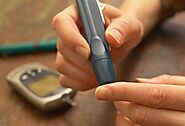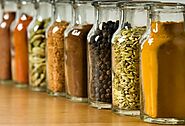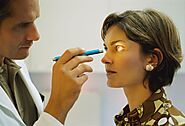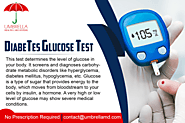-
About
- About Listly
- Community & Support
- Howto
- Chrome Extension
- Bookmarklet
- WordPress Plugin
- Listly Premium
- Privacy
- Terms
- DMCA Copyright
- © 2010-2024 Boomy Labs

Listly by Umbrella Health Care Systems
Diabetes is a chronic (long-lasting) health condition that affects how your body turns food into energy.
Your body breaks down most of the food you eat into sugar (glucose) and releases it into your bloodstream. When your blood sugar goes up, it signals your pancreas to release insulin. Insulin acts like a key to let the blood sugar into your body’s cells for use as energy.
With diabetes, your body doesn’t make enough insulin or can’t use it as well as it should. When there isn’t enough insulin or cells stop responding to insulin, too much blood sugar stays in your bloodstream. Over time, that can cause serious health problems, such as heart disease, vision loss, and kidney disease.

Start small. If you are overweight, shedding just a few pounds can improve the body's ability to use insulin. It'll help lower your blood sugar and improve your blood pressure and blood fats. You'll also have more energy. Ready? Aim to burn more calories than you eat. To start, try cutting excess fat, sugar, and calories from your diet.
https://www.umbrellamd.com/

Getting too much or too little sleep can increase your appetite and cravings for high-carb foods. That can lead to weight gain, increasing your risk for complications such as heart disease. So shoot for seven or eight hours of sleep a night. If you have sleep apnea, treating it can improve your sleep and lower your blood sugar levels.
https://www.umbrellamd.com/

Pick something you like -- walking, dancing, biking, or just marching in place while you're on the phone. Do it a half-hour a day; work up to that if you need to. Exercise can help you lower your cardiovascular risks, cholesterol, and blood pressure levels, and keep your weight down. Exercise also relieves stress and may help you cut back on diabetes medication.
https://www.umbrellamd.com/

You know you're supposed to check it. And actually checking your blood glucose levels can help you avoid diabetes complications, like nerve pain, or keep them from getting worse. Checking it can also help you see how foods and activities affect you, and if your treatment plan is working. Your doctor can help you set a target glucose level range. The closer you get to your target, the better you'll feel.
https://www.umbrellamd.com/

When you have diabetes, stress can cause your blood glucose levels to rise. Get rid of whatever physical or mental stresses you can. Learn coping techniques to deal with others. Relaxation techniques such as breathing exercises, yoga, and meditation may be especially effective if you have type 2 diabetes.
https://www.umbrellamd.com/

Reduce the salt in your diet. It may help lower blood pressure and protect your kidneys. Not salting the food on your plate may not be enough. Most of the salt in Americans' diets comes from processed foods. Avoid convenience foods and use fresh ingredients when you can. Season with herbs and spices instead of salt when you cook.
Adults age 51 and older, and individuals with high blood pressure, diabetes, or chronic kidney disease should talk with their doctor about how much to reduce their sodium intake. In general, people with diabetes should decrease to less than 2,300 mgs per day, however your doctor may recommend lower amounts.
https://www.umbrellamd.com/

Heart disease can be a serious diabetes complication. Keep an eye on your risk by getting these ABCs checked:
A1C level. This is a measure of your average blood sugar control for the last 2-3 months. You may need it checked two or more times a year. Talk to your doctor about setting a goal.
Blood pressure. Goal: below 140/80 mm Hg.
Cholesterol. Goal: LDL to 100 mg/d or lessl; HDL above 40 mg/dl in men and greater than 50 in women; and triglycerides below 150 mg/dl.
https://www.umbrellamd.com/

Diabetes raises your risk of infection and slows healing, so treat even simple cuts and scrapes quickly. Properly clean your wound and use an antibiotic cream and sterile bandage. See a doctor if it's not better in a few days. Check your feet every day for blisters, cuts, sores, redness, or swelling. Moisturize them to prevent cracks.
https://www.umbrellamd.com/

People with diabetes who smoke are two times more likely to die prematurely than those who don't. Quitting helps your heart and lungs. It lowers your blood pressure and risk of stroke, heart attack, nerve damage, and kidney disease. Ask your doctor about help for quitting tobacco.
https://www.umbrellamd.com/

There's no single diabetes diet. But here are basics to keep in mind: Enjoy super foods like berries, sweet potatoes, fish with omega-3 fatty acids, and dark green, leafy vegetables. Look at food labels and avoid saturated fat and trans fats. Instead, opt for mono and polyunsaturated fats like olive oil. A registered dietitian can give you personalized advice.
https://www.umbrellamd.com/

Expect to see your doctor two to four times a year. If you take insulin or need help balancing your blood sugar levels, you may need to visit more often. Also get a yearly physical and eye exam. You should be screened for eye, nerve, and kidney damage, and other complications. See a dentist twice a year. And be sure to tell all health care providers that you have diabetes.
https://www.umbrellamd.com/

Does this test have other names?
Blood sugar, Fasting blood glucose (FBG), self-monitoring of blood glucose (SMBG), glucose challenge test, random blood sugar, oral glucose tolerance test (OGTT), fasting plasma glucose (FPG)
What is a blood glucose test?
This test determines the level of glucose in your body. This test screens and diagnoses carbohydrate metabolic disorders like hyperglycemia, diabetes mellitus, hypoglycemia, etc. Glucose is a type of sugar that provides energy to the body, which moves from your bloodstream to cells by insulin, a hormone. A very high or low level of glucose may show severe medical conditions.
High glucose levels, also known as hyperglycemia, can indicate a sign of diabetes and lead to serious health problems. High blood sugar levels occur in many other conditions, including problems with your adrenal glands or pancreas, and affect glucose levels or insulin in your blood.
People with type 1 and type 2 diabetes and those who take specific diabetes medicines have a common disease of low glucose levels (hypoglycemia). Some conditions like liver disease may also lead to low glucose levels in people having no diabetes, which is not common in people. If you don’t take treatment, very low blood sugar can cause severe health problems, such as seizures and brain damage.
What is the use of this test?
Your doctor recommends this test to analyze and monitor the diabetes of a person. A blood glucose test indicates the sugar levels in your blood.
When do I need the blood sugar test?
If you experience symptoms of a high or a low level of glucose, you may need to order this test.
Some symptoms of low levels of glucose, such as
Fatigue
Difficulty in speaking or seeing
Headache
Hunger
Shaky feeling
Headache
A feeling of confusion or irritation
Disturbance in the flow of the heartbeat or arrhythmia (problem with the rhythm of your heartbeat)
Seizures or fainting
A few symptoms of a high level of glucose include
Frequent urination
Feeling thirsty
Weight loss when people are not trying any effort to lose weight
Vision blurriness
Healing of sores takes a long time
Tingling or numbness in your feet or hands
What are the other causes that develop diabetes?
Your doctor may recommend the blood sugar test if you are at a high risk of type 2 diabetes.
Some of the reasons that lead to diabetes:
Having a high blood pressure
Having a history of heart disease or stroke
Lack of exercise
Overweight
Having a family history of diabetes
Older people of age 45 or more
Gestational diabetes (diabetes that occurs in pregnancy only)
In pregnant women, your provider recommends a diabetes glucose test between the 24th and 28th week of your pregnancy to observe diabetes disease.
What happens during the test?
Your healthcare provider collects your blood sample for the test. A small needle injects into a vein of your arm. Small quantity of blood collects in the test tube. A healthcare provider applies a bandage to your vein. You can return to your home for daily activities. The blood sugar test usually takes at least 5 minutes.
You may need to drink a sugary liquid for some types of glucose blood tests, such as a glucose challenge test and an oral glucose tolerance test (OGTT). You also need to wait for an hour before the blood test.
How do I need to prepare for the test?
You will keep fast for at least 7-8 hours if your healthcare provider recommends a fasting blood glucose test. For other glucose tests, you don’t need special preparation. You can ask your provider when you need to keep fast for your glucose test.
When should I get the results of a blood sugar test?
You will get the report of your blood glucose test in between 1 to 2 days. The glucometer indicates the test results on the spot for a capillary glucose test.
What are the risks involved in the test?
A blood test does not have a high risk. You may experience a little pain when the needle injects into your vein. Generally, symptoms do not stay for a long time. You can feel faint after an oral glucose tolerance test.
What do the test results mean?
You may be at risk for developing diabetes if your test results indicate higher than normal glucose levels. High glucose levels can also result due to
Pancreas disorders
Trauma, stress from surgery, and a specific illness
Hyperthyroidism
Low blood sugar levels may occur due to
Intake of specific diabetes medicines
Avoiding intake of enough food, specifically after the use of diabetes medicines
Increase in physical activity than normal
When you don’t experience diabetes, signs of low blood glucose levels occur due to
Kidney disease
Inactive pituitary, adrenal, or thyroid gland
Alcohol use disorder
What are the recommended values of glucose in a blood test?
The normal values for fasting blood glucose range from 70 to 99 mg/dL (3.9 to 5.5 mmol/L. Values between 50 to 70 mg/dL can be usual for those who do not have diabetes.
What are the high or low values of a blood glucose level?
If the value of blood sugar is between 100 to 125 mg/dL, then it leads to prediabetes. While higher than 126 mg/dL shows that you already experience diabetes. A value of less than 70 mg/dL of blood sugar is low. It will result in type 1 and type 2 diabetes in people.
Your doctor will always depend on one or more tests to observe diabetes. The blood glucose test does not always show the medical disease. The test values may effect due to the use of certain medications or avoiding fasting.
You can place the order for the test by visiting UmbrellaMD. You can book the lab test and discuss your test results with the doctor from an online appointment. Umbrella Health Care Systems reduces the distance between you and a doctor. We are providing valuable and efficient services for you. Learn more from our website and register here.
https://www.umbrellamd.com/e-visit

Diabetes doesn't mean you have to cut carbs completely. Choose carbohydrates that break down in the body slowly, providing steady energy. Reach for whole grains, beans, nuts, and fresh vegetables and fruits. Yes, you can eat fruit even though it's sweet. It's about eating the right amounts of carbohydrates at each meal. A registered dietitian can help you learn how much is right for you.
https://www.umbrellamd.com/

Umbrella Health Care Systems provide complete solution for health related problems.
https://www.umbrellamd.com/